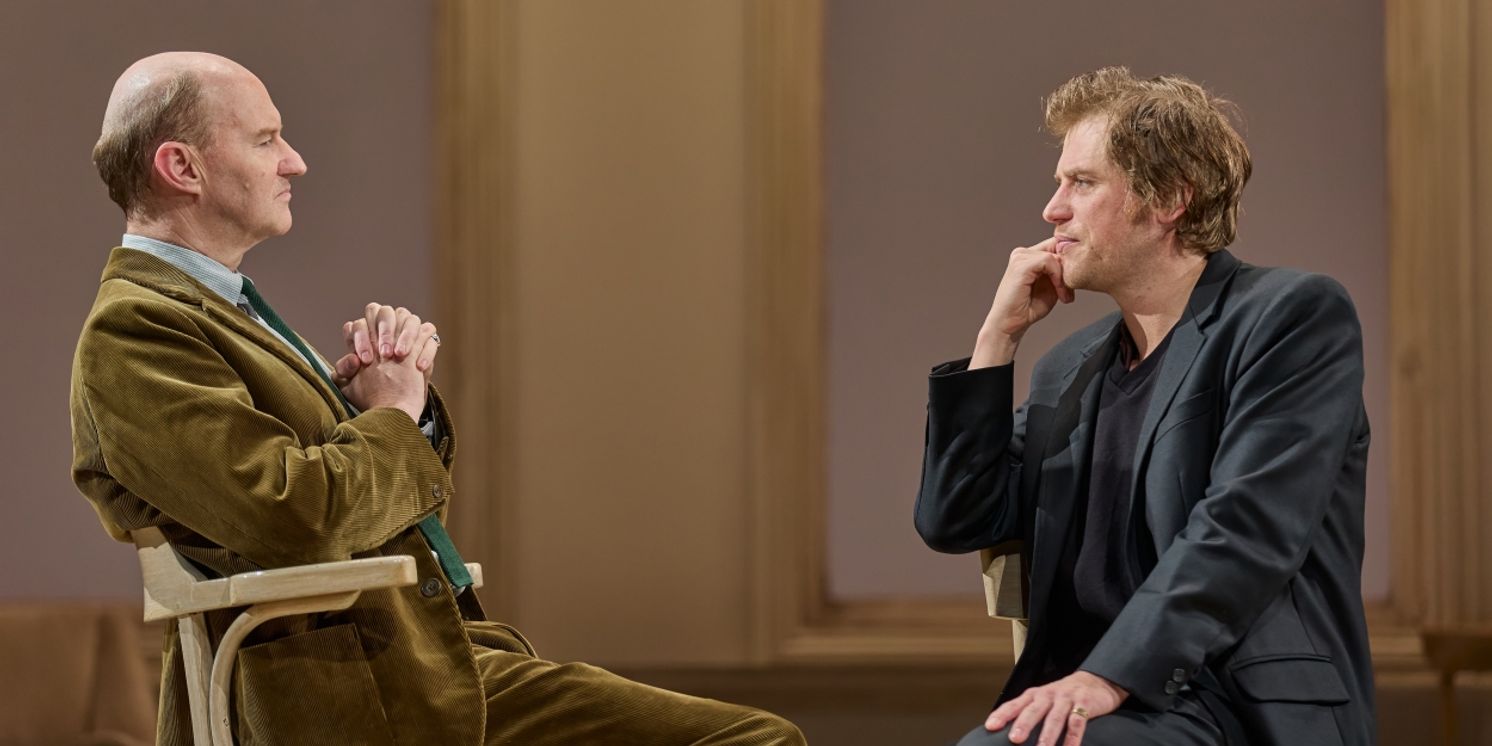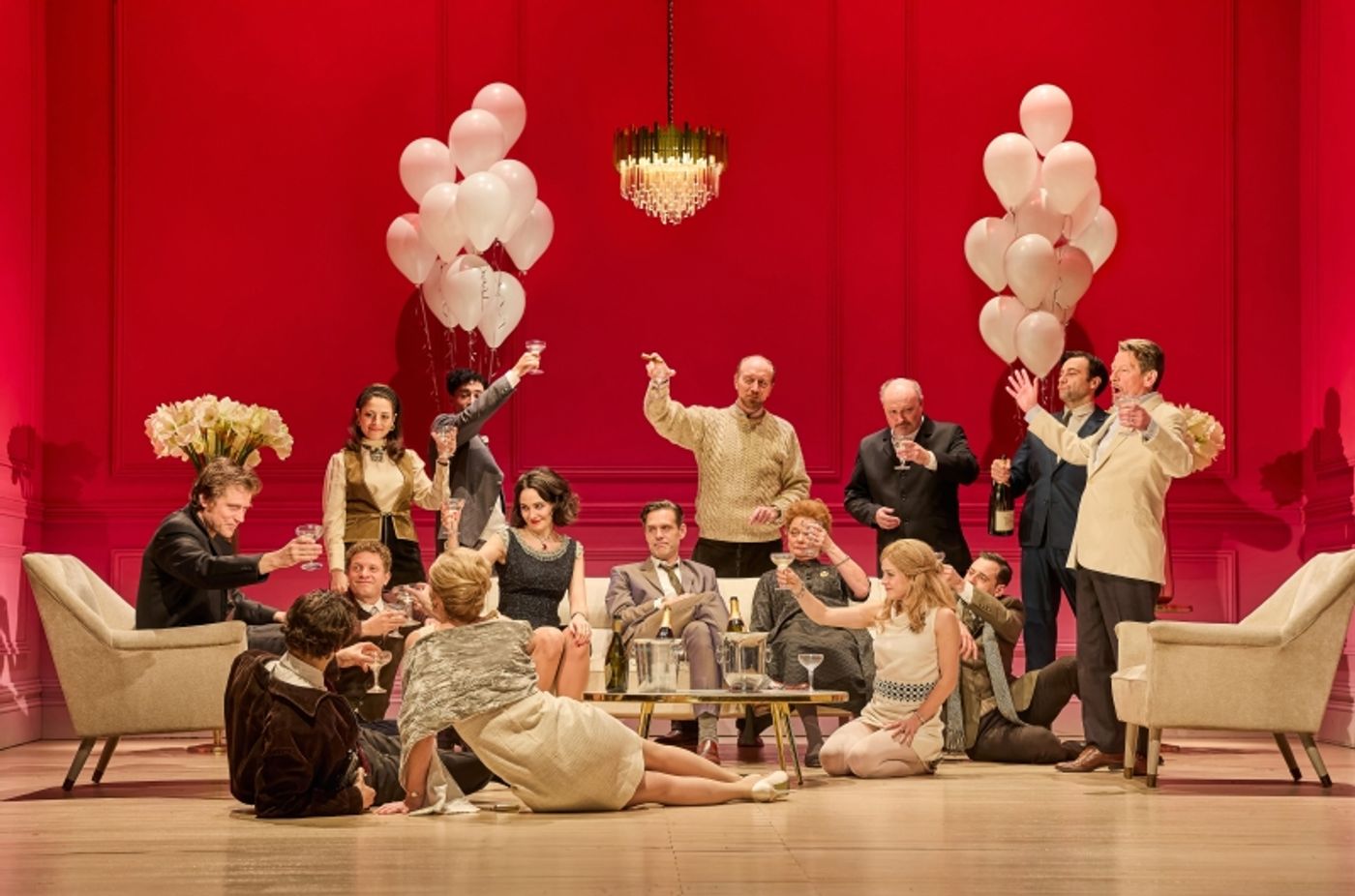Review: THE MOTIVE AND THE CUE, Noël Coward Theatre
The critically acclaimed play by Jack Thorne transfers to the West End.

![]() There’s no drama like off-stage drama. It’s the mid-60s and celebrated actor Richard Burton is gearing up to be Hamlet in a supposedly groundbreaking production directed by John Gielgud. The star and the director clash in nearly all aspects of life and work. Their generational gap and Gielgud’s lack of a decisive vision threaten the whole show; while it was a commercial hit, its journey and critical reception were less than ideal.
There’s no drama like off-stage drama. It’s the mid-60s and celebrated actor Richard Burton is gearing up to be Hamlet in a supposedly groundbreaking production directed by John Gielgud. The star and the director clash in nearly all aspects of life and work. Their generational gap and Gielgud’s lack of a decisive vision threaten the whole show; while it was a commercial hit, its journey and critical reception were less than ideal.
Jack Thorne gives his audience a backstage pass to it in his new play, which has now transferred to the West End after a stellar run on the South Bank. Helmed by Sam Mendes, it features the original cast: Johnny Flynn as Burton, Mark Gatiss as Gielgud, and Tuppence Middleton as Burton's newly wedded wife, Elizabeth Taylor. Their roaring, gripping success continues.
A biting text combines with a strong cinematic direction and sizzling chemistry. Meant in the best and most positive way possible, it’s a highbrow piece of theatre for thespian nerds. One of those you can brag about seeing when you’re attending a dinner party. It’s simply exceptional, but it’s also exceptionally self-referential and vain, perfectly mirroring the personalities of its characters. Thorne examines an exceptionally intriguing slice of theatre history with exquisite humour and melancholia, entrusting Mendes with the colossal task of avoiding making a spectacle of the figures he portrays. Gatiss and Flynn are beguiling. They chisel at their metaphorical block of granite, creating greatness with every blow, building each other up and swiftly taking the other down.
.jpg?format=auto&width=1400)
They engage in a tennis match for the ages, sparring with dry wit and ruthless comebacks in a battle of monumental egos. Flynn gives a career-defining performance as the marvellously bratty and hot-headed anti-hero. His Burton takes over the stage at any given chance, commanding his space and eagerly waiting to extract a reaction from Gielgud. Flynn unravels, then puts himself back together, then self-destructs before magically rebuilding himself. It’s a joy to watch him find Burton’s Hamlet before the stoic guidance of Sir John Gielgud, a man he equally admires and antagonises.
Gatiss is, in turn, a corduroy dream, all elongated flat vowels and perfect diction. Dedicated to his art almost to a fault, his Gielgud is in unequivocal opposition with Burton’s boozy nights. He hides his displeasure underneath a coat of snide half-compliments and awkward snickers that conceal a wounded pride. Gatiss is flamboyantly poised in the delivery of Gielgud’s intelligence and possesses an astounding physical vocabulary that makes him an often darkly comical figure. His character’s contradictions become ammunition for Burton's class insecurities, generating a feast for silver tongues as Gielgud grabs every opportunity to establish intellectual dominance over him.

They’re joined by a cast which is an evenly skilled backdrop for their bickering and industry-centric state-of-the-nation discussions. Middleton owns Taylor’s sexuality; she’s flattered by everyone’s attention but keeps her ambitions and interests in focus. She’s the one who ultimately gives Gielgud the key to unlock Burton’s Hamlet. Another highlight of the company is Sarah Woodward as Eileen Herlie, who stuns in her brief moments as Gertrude. Mendes toys with several exciting visual compositions, opting to isolate his actors before a black curtain to deliver snippets from Hamlet during the scene changes. Projected titles introduce the next chapter in the timeline before they drop back into the action in medias res, creating a flow in the narrative and allowing for impressive turnarounds in the sets (Es Devlin).
Thorne’s magnetic, beckoning dialogues have perfect pitch under Mendes’ meticulous direction. His rehearsal scenes almost have a Renaissance flair to them with their warm lighting (Jon Clark) and grouping of bodies while the Burton-Taylor hotel suite is pervaded by a debauched red and wilting flowers.
Underneath all the business talk and impudent views, The Motive and the Cue is a play about vanity, theatre, and ego with a veiled commentary on the British class system. It’s devastating, yet not entirely universal; gorgeous, yet meaty in its interpretations. It's a love letter to the harrowing processes that contribute to the creation of beauty.
The Motive and the Cue runs at the Noël Coward Theatre until 23 March 2024.
Photo credits: Mark Douet
Reader Reviews
Powered by
|
Videos

